How the UK Education System Compares to South Korea: A Guide for South Korean Students Considering Abbey DLD Colleges
19th February 25
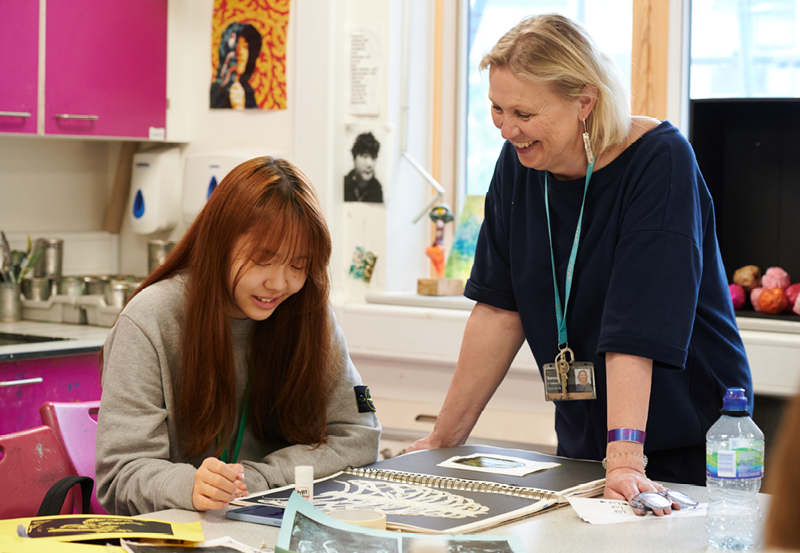
Introduction: Why South Korean Students Choose to Study in the UK
For many South Korean students and parents, studying in the UK is an exciting opportunity to gain a world-class education, develop independent thinking skills, and gain access to top British universities. While South Korea’s education system provides a structured and disciplined learning environment with a strong emphasis on academic excellence, the UK education system offers a more flexible approach, allowing students to specialise in subjects of interest and develop independent thinking skills. Both systems prepare students for university and future careers, but they do so through different methods—South Korea’s approach builds resilience and comprehensive knowledge across multiple disciplines, while the UK system encourages specialisation and analytical problem-solving.
One of the best ways for South Korean students to adapt to the British education system is through Abbey DLD Colleges—a group of top independent sixth-form colleges in Cambridge, Manchester, and London, offering A-Levels, GCSEs, BTEC, and International Foundation Programmes (IFP). These colleges provide a supportive learning environment with small class sizes, personalised teaching, and a direct route to top universities.
This guide explains how the UK education system works, how it compares to South Korea’s system, and why Abbey DLD Colleges are the perfect option for students who want to make the transition to studying in the UK.
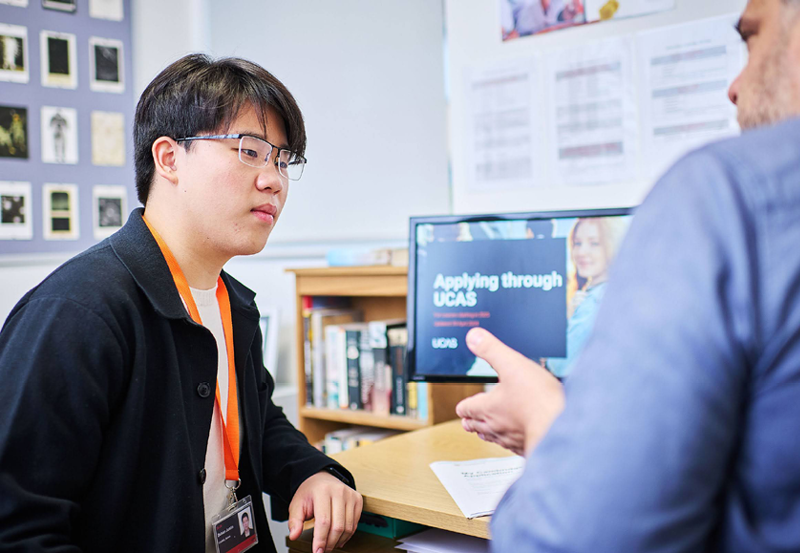
Understanding the UK Education System: A Flexible and Specialised Approach
The UK education system is structured to allow students to specialise in their academic interests while developing key skills for university and future careers. It follows a Key Stage system, leading to internationally recognised qualifications such as GCSEs, A-Levels, and International Foundation Programmes.
- Primary and Lower Secondary Education (Ages 5-16)
- Duration: 11 years (split into Key Stages 1-4).
- Curriculum: Includes English, mathematics, sciences, humanities, creative arts, and languages.
- Assessment:
- Standardised SATs exams at ages 7 and 11.
- GCSE exams at age 16 (students typically take 8-10 subjects).
- Qualification Awarded: General Certificate of Secondary Education (GCSE).
- Post-16 Education (Ages 16-18) – Specialisation Begins
Unlike South Korea, where students continue with a broad curriculum until high school graduation, UK students specialise from the age of 16, choosing three to four subjects based on their university and career goals.
Pathways for South Korean Students at Abbey DLD Colleges
-
-
- A-Levels (2-year programme):
- Ideal for students aiming for Oxford, Cambridge, Imperial, LSE, and Russell Group universities.
- Students select 3-4 subjects related to their future degree (e.g., mathematics, physics, economics).
- Assessment: Final exams after two years.
- International Foundation Programme (IFP, 1-year intensive university preparation):
- Best for students who want to fast-track their UK university admission.
- Includes pathways in Business, Engineering, Medicine, and Arts.
- Recognised by leading universities worldwide.
- BTEC Diploma (Career-focused alternative to A-Levels):
- Practical, coursework-based qualification in subjects such as Business and Media.
- Well-suited for students interested in applied learning and creative industries.
- A-Levels (2-year programme):
-
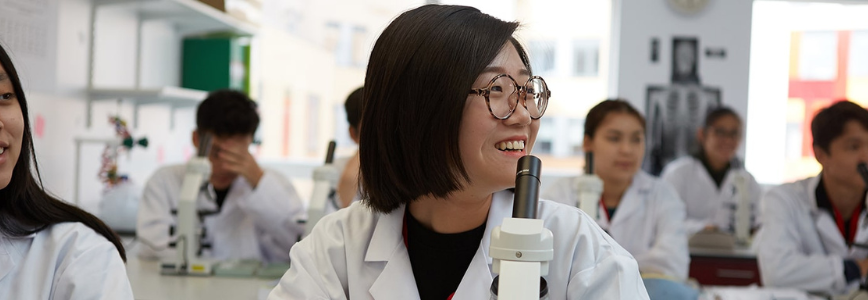
- University Education in the UK (Ages 18+)
- Duration: 3 years (4 years in Scotland).
- Entry Requirements: A-Levels, IFP, or BTEC qualifications.
- Teaching Style: Lecture-based learning, research projects, and independent study.
How Does the UK System Compare to South Korea’s System?
For South Korean students looking to broaden their academic experience and enhance their future opportunities, transitioning to the UK education system can be a rewarding step. While the curriculum, teaching methods, and university pathways differ from South Korea’s structured approach, studying in the UK allows students to develop independent learning skills, specialise in subjects of interest, and prepare for success in a global academic environment. Below is a detailed comparison to help students understand what to expect and how they can benefit from the UK system.
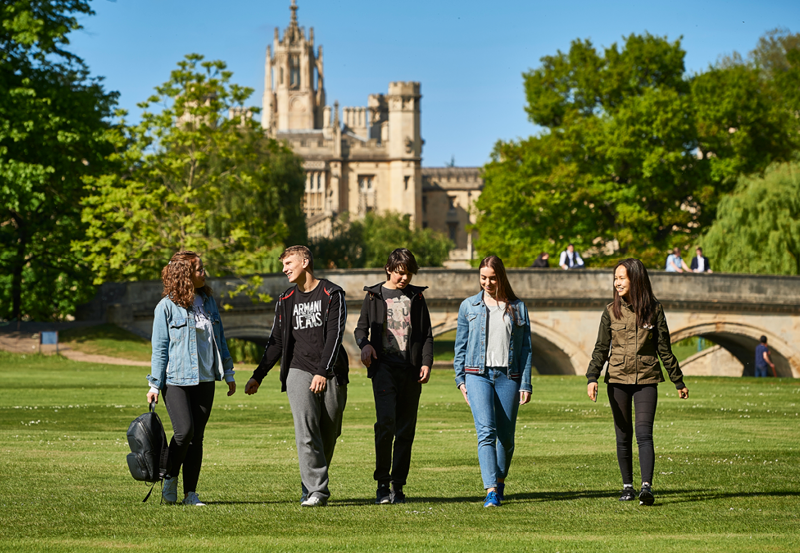
Education Structure Comparison Table
| South Korea | United Kingdom | ||||
| Age | Year | Schools | Age | Year | Schools |
| 3-5 | Kindergarten | Kindergarten | 3-4 | Nursery | Nursery |
| 4-5 | Reception | Reception | |||
| 6-7 | Year 1 | Elementary School (6 Years) | 5-6 | Year 1 | Primary School (6 Years) |
| 7-8 | Year 2 | 6-7 | Year 2 | ||
| 8-9 | Year 3 | 7-8 | Year 3 | ||
| 9-10 | Year 4 | 8-9 | Year 4 | ||
| 10-11 | Year 5 | 9-10 | Year 5 | ||
| 11-12 | Year 6 | 10-11 | Year 6 | ||
| 12-13 | Year 1 | Middle School (3 Years) | 11-12 | Year 7 | Secondary School (5 Years) |
| 13-14 | Year 2 | 12-13 | Year 8 | ||
| 14-15 | Year 3 | 13-14 | Year 9 | ||
| 15-16 | Year 1 | High School (3 Years) | 14-15 | Year 10 | |
| 16-17 | Year 2 | 15-16 | Year 11 | ||
| 17-18 | Year 3 | 16-17 | Year 12 | Sixth Form (2 Years) | |
| 17-18 | Year 13 | ||||
Key Differences Between South Korean and UK Education
| Aspect | UK (Abbey DLD Colleges) | South Korea |
| Curriculum Approach | Flexible and student-driven, allowing students to specialise in subjects of interest | Comprehensive and structured, ensuring students receive a broad and well-rounded education |
| Assessment System | Modular exams and coursework-based assessments, reduce stress and allow continuous progress | High-stakes CSAT (Suneung) exam, testing students’ ability to perform under pressure and preparing them for competitive university entry |
| University Preparation | Focus on critical thinking, research, and problem-solving, fostering independent learning skills | Emphasis on academic discipline and rigorous test preparation, ensuring students develop strong work ethics and perseverance |
| Subject Specialisation | Students choose 3-4 subjects at A-Level or follow a Foundation Programme, tailoring education to their future career aspirations | Students study all core subjects until high school graduation, ensuring they have a solid foundation in multiple disciplines |
| Medium of Instruction | English, providing international exposure and improving global career opportunities | Korean, preserving national language and culture while integrating English learning from an early stage |

Why Choose Abbey DLD Colleges Over South Korea’s High School System?
For South Korean students who want to gain entry into top UK universities while developing a more well-rounded education, Abbey DLD Colleges provide the ideal transition into British education.
- Personalised and Flexible Learning
-
- Small class sizes ensure individual attention and one-on-one support from expert teachers.
- Students can choose between A-Levels, IFP, or BTEC, allowing them to find the best pathway to university.
- Strong University Preparation and Admissions Success
-
- Abbey DLD students receive specialist UCAS guidance to secure offers from top universities.
- Dedicated elite university preparation programmes help students aiming for Oxford, Cambridge, Imperial, UCL, LSE and Russell Group universities.
- Personal tutors and academic mentoring ensure that students stay on track.
- English Immersion in a Global Academic Environment
-
- Students study in an English-speaking environment with full support in academic English.
- A diverse international student body helps South Korean students integrate into global academic culture.
- Outstanding Boarding and Student Life Experience
-
- Premium boarding facilities at all campuses provide a safe, supportive environment.
- 24/7 pastoral care ensures a smooth transition for international students.
- Clubs, competitions, and extracurricular activities help students develop leadership and social skills.
- Study in Three World-Class Locations
-
- Abbey College Cambridge: Located in the world’s most prestigious university city.
- Abbey College Manchester: A small, friendly college with a strong science and business focus.
- DLD College London: A modern, innovative college in central London, perfect for students interested in business, media, and the arts.

Final Thoughts: Your Pathway to Success
If you are a South Korean student looking for a high-quality education in the UK, Abbey DLD Colleges provide an outstanding opportunity to gain internationally recognised qualifications, prepare for top universities, and study in a supportive academic environment. Studying in the UK opens doors to top global universities, world-class teaching, and international career opportunities. Abbey DLD Colleges provide the ideal pathway for South Korean students to adapt, excel, and achieve their academic goals.
BLOG AUTHOR
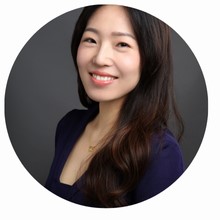
Water Yang
Regional Manager, Asia
Email: Water.Yang@abbeydld.co.uk
Mobile/WhatsApp:+852-9605 8081
Get in touch today:
Since 1931, the Abbey DLD Group of Colleges has been synonymous with high-quality education, top university destinations, and enriching academic and pastoral experiences. Abbey DLD students graduate equipped with the skills to progress in their university studies and future careers, with friends from all around the world, and having made memories to remember for a lifetime.
Want to learn more about studying at the Abbey DLD Group of Colleges? Contact us and one of our admissions advisors will be in touch with you shortly.



